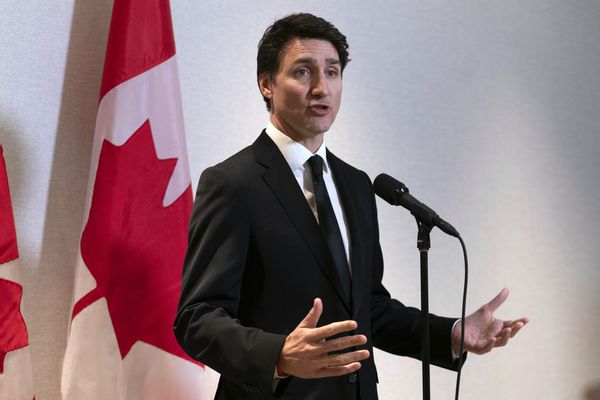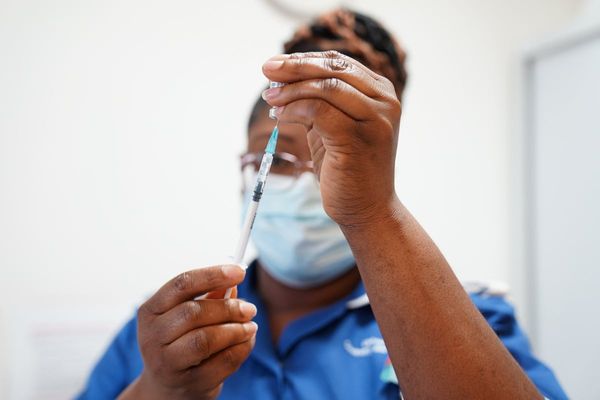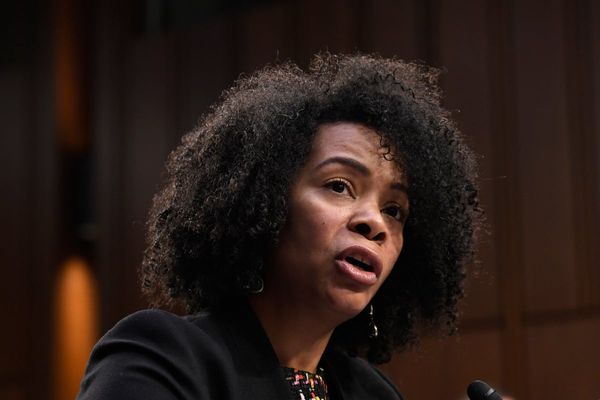
No 10 is drawing up plans to phase out England’s remaining pandemic restrictions from as early as March as a beleaguered Boris Johnson signals to his backbenchers that he is prepared to let the UK live with the virus.
A senior source confirmed that the government was looking at ending mandatory self-isolation for positive Covid cases, saying it would be “perverse” to keep the measure in the long term. It could be replaced by guidance.
The legal requirement to self-isolate, carrying fines of up to £10,000 for non-compliance, is one of several pieces of Covid legislation due to expire in March and the government is considering whether any of it will still be necessary.
Other provisions that will run out or require renewal include giving your address to NHS test and trace and listing members of your household. Powers relating to government funding for sick pay, inquests and emergency registration of medical workers also remain on the statute book.
Plans to end most plan B Covid restrictions in England, including working from home guidance and Covid passports, are also set to be finalised and announced this week or early next week. But ministers are expected to continue in the short term with rules mandating mask-wearing in shops and on public transport.
“There’s a few legal powers still on the statute book, not least the requirement to self-isolate. At some point we will have to address them,” the source said.
Some scientists warned against downgrading laws to reduce the spread of Covid, saying it could heap pressure on the NHS, but others said it was a logical next step.
It comes as Johnson faces the greatest pressure of his premiership over the Downing Street parties scandal. At the weekend it emerged that his fightback strategy, dubbed Operation Red Meat, involves drawing up or expediting measures to appease furious MPs and voters.
The prime minister is said to believe he has been vindicated on the decision not to impose harsher Covid restrictions amid the surge caused by the Omicron variant, though he will risk accusations of distraction techniques to appeal to lockdown-sceptic backbenchers, scores of whom rebelled before Christmas on plan B measures.
Johnson will convene a series of meetings this week to look at the trajectory of Covid data. A senior Whitehall source said there was a possibility that new testing requirements could “distort” the data, given that those without symptoms are no longer required to take a PCR test after a positive rapid test, and many do not self-report their results to the NHS.
But the source said that the pattern would still be evident. “Even if it does change some of the numbers, we are able to monitor the path of cases accurately.”
Two senior sources said Covid certification and home working rules were “unlikely to continue” past 26 January, but mask-wearing could remain. No 10 is also likely to lift the requirement for travellers to take a Covid test on returning from abroad, a key demand of the transport secretary Grant Shapps.
In its autumn/winter plan, the government said it would review the future of regulations relating to self-isolation by the end of March 2022 but that was published before Omicron hit.
Asked about plans to drop the legal requirement to isolate after a positive Covid test, Prof Azra Ghani, an epidemiologist at Imperial College London, said self-isolation remained an important aspect of the public health response.
“The widespread availability of lateral flow tests that enable self-isolation has undoubtedly been one of our strongest responses to the Covid-19 pandemic,” Ghani said. “We should therefore see this as an opportunity to enhance our public health response to other serious diseases rather than to downgrade our Covid response.
“Such an approach would, in addition to saving lives, reduce the annual winter burden of respiratory illnesses on the NHS, freeing up space and resources to focus on other health needs.”
But Prof Rowland Kao, an epidemiologist at the University of Edinburgh and a contributor to the modelling group Spi-M, said the step was inevitable and not without logic. “So long as it’s with guidance from the state of the epidemic in the UK, it doesn’t seem unreasonable,” he said, adding that by March boosters should have been given to the majority who are eligible and want them.
“Flu season should be largely over, and hopefully by then we’ll also get a sense of how much antivirals are helping to reduce severity. In general, we also might expect less mixing indoors and circulating natural immunity should be very high at that point.”
The timing of the announcement on plan B is likely to be affected by the release of a report by the senior civil servant Sue Gray into alleged lockdown breaches in Downing Street, including by Johnson himself.
On Monday, Downing Street said it would give businesses enough time before next Wednesday to prepare for the lifting of restrictions or any other changes.
Johnson’s spokesman said: “In terms of the data, there are some encouraging signs that infections are falling across the country. Obviously we want to see that mirrored in the latest ONS data as well.
“There are also some signs of falls – or at least plateauing – in admissions and occupancy in hospital, which is good to see, but it still remains the case that our NHS is under significant pressure – there are over 16,000 Covid patients in hospital in England alone.”
What are the current regulations?
Self-isolation requirements are set out under the Health Protection (Coronavirus, Restrictions) (Self-Isolation) (England) Regulations 2020, which is due to expire on 24 March 2022. They state that people have to isolate under a legal duty if contacted by test and trace, and to provide their addresses and names of people in their household.
Other legislation is on the statute book as part of the Coronavirus Act, which expires on the same date. Much of this has already been phased out, including the secretary of state’s powers to require schools to close, which was never needed in law.
However, there are still provisions that include allowing people to claim statutory sick pay (SSP) earlier, permitting the majority of inquests where Covid is suspected to take place with no jury, and emergency measures relating to the recruitment of medical staff. Rowena Mason







